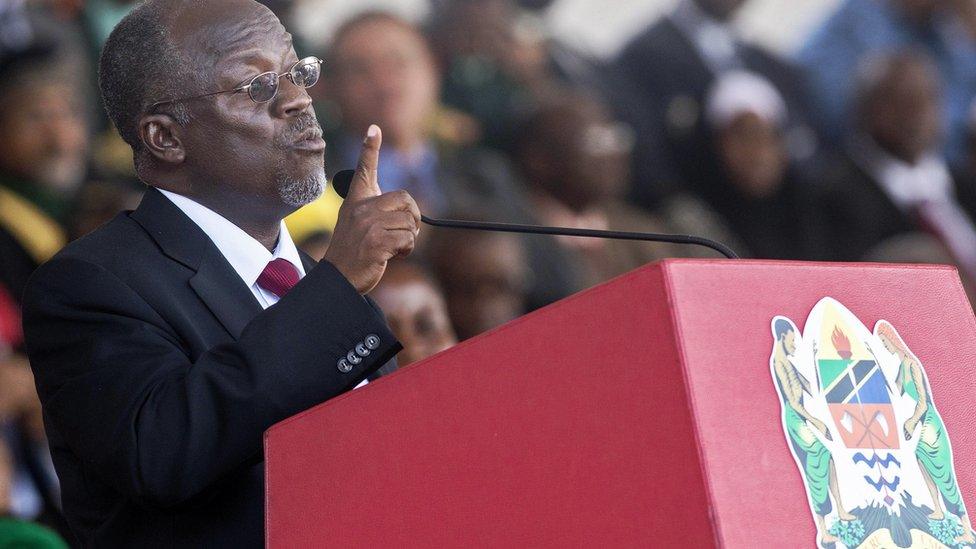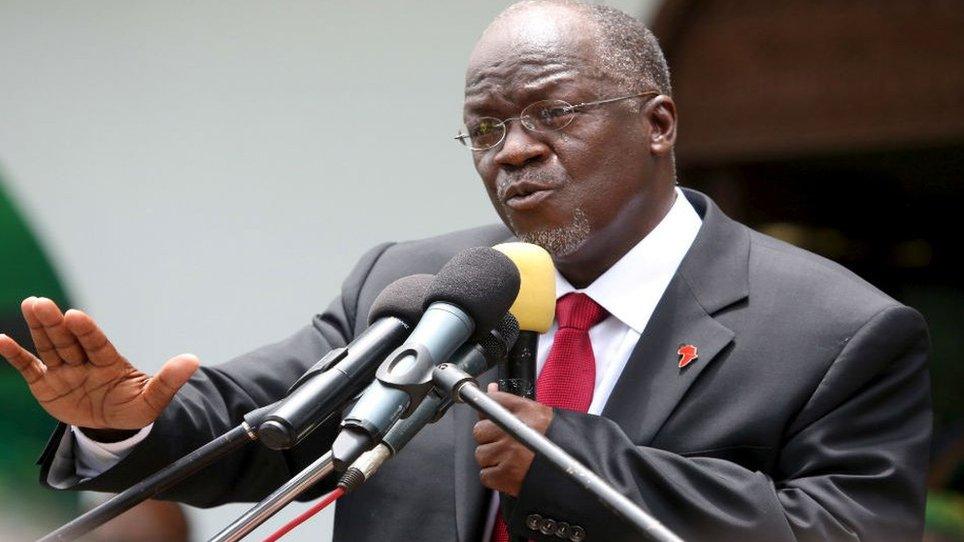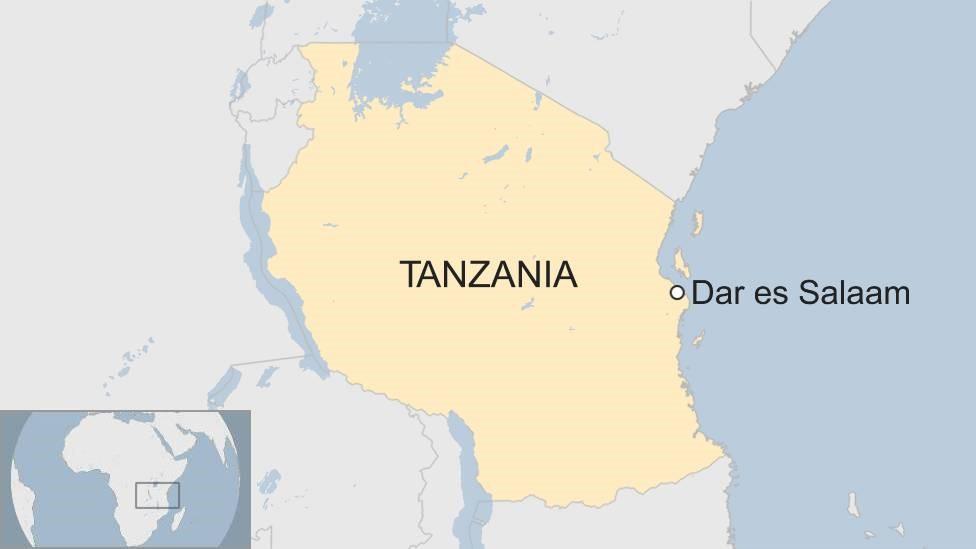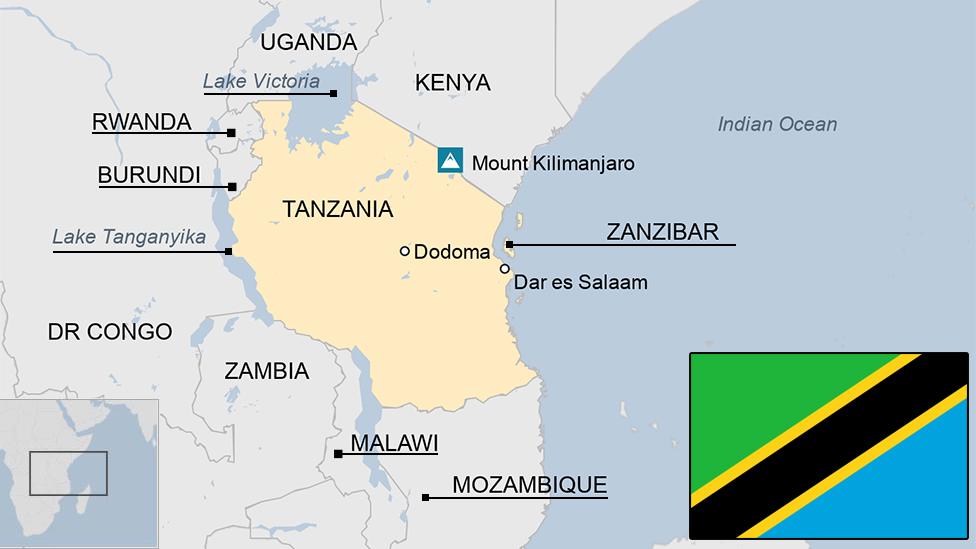Tanzania threatens to shut churches after Magufuli criticism
- Published

John Magufuli denies being an authoritarian leader, despite a crackdown on political activity
Tanzanian authorities have threatened to shut down churches which mix religion and politics after a cleric criticised President John Magufuli.
The cleric, Zachary Kakobe, used a Christmas sermon to say the country was "turning into a one party state".
Days later, the Home Affairs Ministry warned religious organisations which dabbled in political issues would have their licence revoked.
Critics complain of growing intolerance towards dissent in Tanzania.
Some critics accuse President Magufuli, nicknamed "the Bulldozer", of becoming increasingly authoritarian - a charge he strongly denies.
Several newspapers have been shut down and individuals have been prosecuted for allegedly insulting the president on social media, while last year Tanzanian police indefinitely suspended political protests and rallies, only permitting political campaigning during elections.
The constitution of Tanzania protects freedom of worship - although religious organisations must register for a licence with the country's Home Affairs Ministry to operate legally.
But Mr Kabobe, who leads a Pentecostal church in the commercial capital Dar es Salaam, used his Christmas sermon to tell congregants Tanzania was "quietly turning into a one-state rule by systematically banning political activity".

Mr Magufuli, who took power in 2015, is known as the "bulldozer"
On Thursday, Projest Rwegasira, the permanent secretary in the Ministry of Home Affairs, warned religious leaders talking about political issues "could lead to cancellation of the registration of the concerned religious society", news agency Reuters reports.
He said religious leaders "using their sermons to analyse political issues is contrary to the law".
- Published7 November 2017

- Published28 October 2017

- Published2 May 2023
